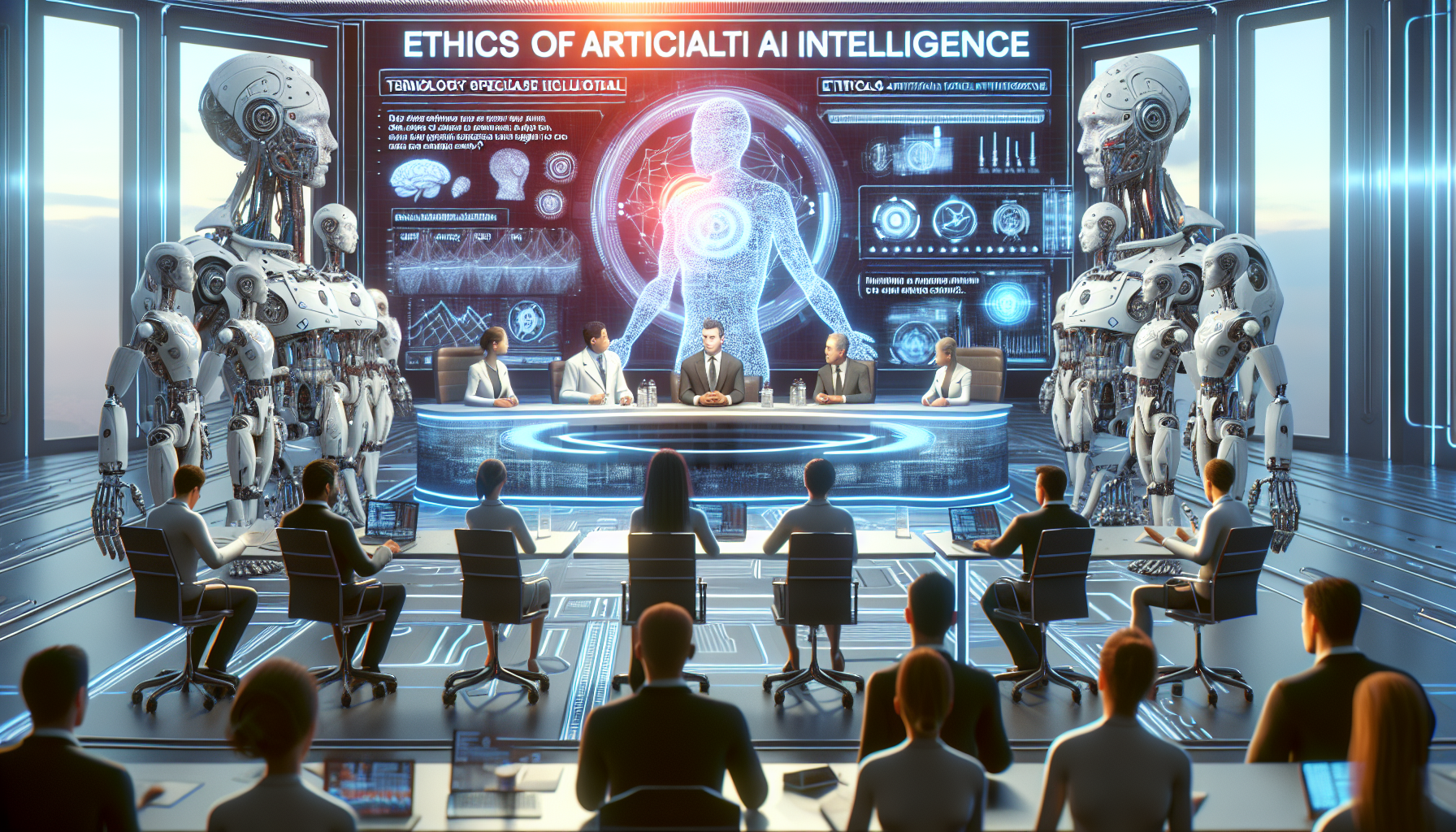Advertisements
The ethics of artificial intelligence is an increasingly relevant topic in today's society. With the advancement of technology and the implementation of increasingly complex algorithms, questions arise about how AI can impact our future and whether we are prepared to deal with the ethical challenges it presents.
Advertisements
Artificial intelligence is already present in many aspects of our daily lives, from virtual assistants to recommendation systems on online platforms. However, the ethical issue surrounding the use of AI involves issues such as algorithmic bias, data privacy, and autonomous decision-making by machines.
It is important to reflect on how the ethics of AI can shape our future and how we can ensure that technologies are developed responsibly and transparently. Discussing the regulation and ethical use of AI is essential to ensuring that technologies are used for the good of society.
In this article, we will explore in more depth the ethical issues related to artificial intelligence and how we can prepare ourselves to deal with the challenges it presents. After all, it is essential that we remain vigilant and engaged in building a future in which AI is an ally, not a threat, to humanity.
Advertisements
The ethics of artificial intelligence and its impact on the future
Artificial intelligence (AI) is becoming increasingly present in our daily lives, shaping the way we interact with the world around us. However, the ethical question surrounding the development and use of AI has been widely debated, raising concerns about the challenges that may arise in the future.
Ethical challenges of artificial intelligence
One of the main ethical challenges of artificial intelligence is the issue of accountability. Who should be held accountable for decisions made by AI systems? How can we ensure that these decisions are fair and impartial? In addition, user data privacy is also a major concern, as the collection and use of personal information can raise concerns about privacy invasion and manipulation.
- Responsibility for the use of AI
- Justice and impartiality in decisions
- User data privacy
Preparing to deal with AI challenges
To address the ethical challenges of artificial intelligence, it is essential that society as a whole is prepared. This includes creating clear policies and regulations to guide the development and use of AI, as well as promoting open and transparent discussions about the ethical implications of the technology.
Furthermore, education and awareness about AI ethics are essential to ensure that professionals working with this technology are prepared to make ethical and responsible decisions.
Ultimately, the ethics of AI will play a crucial role in shaping the future of technology and society as a whole. It is crucial that we are prepared to deal with the ethical challenges that will arise and ensure that AI is developed and used ethically and responsibly.

Given the ever-evolving landscape of artificial intelligence, it is essential to constantly reflect on and update the ethical issues involved. Collaboration between different sectors of society, such as governments, companies, academia and civil society, is essential to ensure that AI is developed in an ethical and responsible manner. Implementing clear guidelines and establishing solid ethical standards are important steps to ensure that artificial intelligence is a beneficial tool for humanity, contributing to a more inclusive, fair and sustainable future.
It is essential that the ethics of artificial intelligence be constantly debated and improved, with the active participation of various stakeholders in society. Collaboration between experts, policymakers, companies and civil society is essential to ensure that AI is developed in an ethical and responsible manner, taking into account the fundamental values and principles of humanity. Building an ethical environment in the field of artificial intelligence is a crucial step to ensuring that technologies are used in a beneficial way and that they contribute to a more just, inclusive and sustainable future.
Conclusion
In a world increasingly dominated by artificial intelligence (AI), ethics plays a crucial role in shaping the future of technology and society. The ethical challenges of AI, such as responsible use, fairness in decisions, and privacy of user data, raise important questions that need to be addressed. To address these challenges, it is essential that society is prepared, with clear policies, effective regulations, and open discussions about the ethical implications of the technology.
Furthermore, education and awareness about AI ethics are essential to ensure that professionals working with this technology are prepared to make ethical and responsible decisions. Preparation to deal with the ethical challenges of AI is essential to ensure that the technology is developed and used ethically and responsibly.
Therefore, it is crucial that we are aware of and prepared to face the ethical challenges that will arise as artificial intelligence advances. Only then can we ensure a future in which AI is a positive force, benefiting society as a whole.
The advancement of artificial intelligence has brought countless benefits to society, but it has also raised fundamental ethical questions that cannot be ignored. Key challenges include data privacy, transparency in algorithms, and fairness in decisions made by automated systems. To address these issues, it is essential that governments, companies, and citizens collaborate to create clear regulations that guide the development and responsible use of technology. In addition, education on AI ethics must be a priority, empowering professionals to make more informed decisions that are aligned with human values. Open debate on the ethical implications of AI is equally important, ensuring that voices from different sectors of society are heard. With effective measures, ongoing education, and a collective commitment to ethics, it will be possible to ensure that AI is used as a positive force, promoting progress without compromising fundamental principles.




